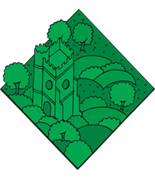Curriculum
Computing
Computing
The knowledge and safe use of computers and computer systems is a key life skill for the future. We empower children to become confident, compassionate, and digitally literate members of their modern community.
Intent
We recognise that pupils are entitled to and will provide a rich and diverse computing education which addresses the National Curriculum objectives with a coherently planned and structured, progressive approach to understanding concepts and developing talents within computer science and the acquisition of real-world I.T. skills. These will enable children to aspire and flourish not only in computing but in many arenas with accomplished transferrable skills.
We will ensure equal access to learning for all pupils, with high expectations for every pupil and appropriate levels of challenge and support so that all children experience, enjoy and make progress. Through confident and well-designed teaching of computing, utilising the opportunities that computing provides, we will encourage children to become ambitious, eager and independent in pursuit of skill development and in the application of computational thinking to approach problems. Faced with problems, children require, hope, resilience, discipline and endurance, which are also real-life universal skills, in order to persevere.
All these abilities, in conjunction with instruction in living well together through E-Safety tuition, empower children to achieve what is necessary to become confident, compassionate, and digitally literate members of their modern community.
Our vision is to equip children with a solid foundation of tools and experiences in the use of computational thinking to independently carry these forwards to support them through secondary education and beyond – to make sense of and take their place as active participants in an ever-increasing digital world and give them choices in future such as an industry full of opportunities.
The school believes that IT, computer science and digital literacy:
- Are essential life skills necessary to fully participate in the modern digital world.
- Allows children to become creators of digital content rather than simply consumers of it.
- Provides access to a rich and varied source of information and content.
- Communicates and presents information in new ways, which helps pupils understand, access and use it more readily.
- Can motivate and enthuse pupils to aspire further.
- Offers opportunities for positive relationships by means of communication and participation in collaboration through group working.
- Has the flexibility to meet individual needs while developing the talents and confidence of each pupil.
The school’s aims are to:
- Meet the requirements of the national curriculum programmes of study for Computing at Key Stage 1 and 2.
- Provide a broad, balanced, challenging and enjoyable curriculum for all pupils.
- To enrich each child’s life in all its fullness, to develop pupil’s transferrable computational thinking and I.T. skills that will benefit them throughout their lives.
- To equip pupils with the confidence and skills to use digital tools and technologies throughout their lives.
- To respond to new developments in technology.
- To enhance and enrich learning in other areas of the curriculum using IT and computing.
- To develop the understanding of how to use computers and digital tools safely, respectfully and responsibly.
- Equip teachers and staff with the subject knowledge and confidence to plan, teach and assess computing to the expectations required of the subject.
Implementation
The St Marys CE Primary School Planning Overview for Computing has been written using the National Curriculum objectives and based on the:
- Islington Computing Planning
- Islington Computing Skills Progression document
- National Centre for Computing Education (DfE) planning.
These have been used in order to create a bespoke and progressive sequence that encourages wisdom and endurance in all areas of computing (Computer Science, I.T. and E-Safety).
Supporting materials e.g. individual lesson plans, are available for each lesson / activity included within the planning.
In order to achieve coverage over the course of a school year, teachers will need to teach Computing both as a required discrete subject and integrating cross-curricular opportunities.
- Teaching of computer science and e-safety should be taught as discrete. To assist with planning, quality of teaching, sequence, timings, and provision of resources, teachers are entitled to plan for weekly sessions or ‘block off’ days / weeks.
- Teaching of I.T. should be taught in a cross-curricular fashion. In order to achieve coverage, teachers should look for opportunities to achieve their year group’s I.T. objectives outlined in the Computing Overview, by including I.T. within the planning of other subjects. For example, creating storyboards within English; using word processors or presentation software to store and display history research or using I.T. to create graphs during maths or science. The Computing Planning Overview supports this.
Assessment
Teachers regularly assess progress through observations and evidence. Key objectives to be assessed against are taken from the National Curriculum. The school uses the NC Objectives in the form of ‘I can’ statements as a guide when assessing pupils. Each pupil’s attainment is then recorded either online using the J2 Review facility within J2 Tool Suite or on a paper assessment tracker also containing the same objectives within the pupil’s Computing Folders. Assessing computing is an integral part of teaching & learning and key to good practice.
As well as offering a diverse and immersive Computing curriculum, we also offer an array of extra-curricular activities for our children to engage in:
- Digital Leaders: a group of children who are at the heart of online safety within their school community and follow the Childnet Digital Leaders Programme where they explore important e-safety issues.
- Code Clubs (Years 3-6): an after-school club which offers a variety of programming languages and activities to enthral and enthuse young coders.
- Codeweek EU Events: a week which is celebrated throughout Europe and beyond which encourages everyone to give coding a try.
- St Mary’s Codeweek: an in-school event which encourages children and parents to engage in a variety of workshops – such as Ohbot, Code Breaking, Cubetto, Microbit – and enhance their coding skills.
- Emirates Computing Celebration: an event which celebrates computing from local schools and showcases a variety of school projects and new technologies.
- Safer Internet Day: an internet safety global celebration day which takes place in February each year.
- Hackathons: collaborative computer programming events which are attended by our Code Club children.
- Kids Judge BETT Show: an industry show at London’s ExCeL Centre where children are entrusted with the task of judging the latest educational technology products that will be inspiring future learners.
- STEM Events & Workshops: a variety of events and workshops which happen throughout the year such as – Robotics workshops and STEM Showcase at Greig City Academy and Magic Cubes Project run by UCL – which allow the children to collaborate with others from outside their school environment and experience computing through a range of mediums.
Downloads
Computing Whole School Curriculum Map
Online Safety Policy and acceptable usage guidance
Top Tips for Healthier Digital Habits
Smartphone Free Childhood Movement WhatsApp
Our curriculum maps are designed with both coverage and progression built in. This makes our curriculum dynamic, ever-changing and responsive to the children’s needs and learning styles.


